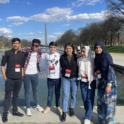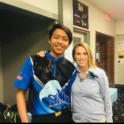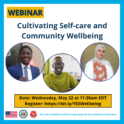Muskan, a student from Pakistan, discusses her experience attending Civic Education Week.
STORIES
Check Your Facts Online Workshop 2020

By Fayad Khan (YES 2018-2019, Bangladesh, placed with CIEE in Lake Stevens, WA) and Faiza Mahjabin (YES 2018-2019, Bangladesh, placed with IRIS in Harcourt, IA)
The Check Your Facts Online Workshop 2020, held last November and December, was implemented to teach high schoolers in our community the fact-checking skills that they need to handle misinformation. The project consisted of three one-day workshops, which included online sessions on teaching fact-checking skills and completing fact-checking challenges and surveys. The sessions were held via Google Meet and Messenger Room. Various fact-checking skills, including Lateral Reading, Reverse Image Search, ESC (Emotion, Source, Claim), fact-checking challenges, etc. were covered in these workshops. The project had a considerable number of participants from all over Bangladesh, with the highest number of participants from Dhaka.
We were inspired to conduct this workshop as misinformation and disinformation are an enormous issue in our community, especially on social media platforms like Facebook, Twitter, and YouTube. Misinformation is constantly being published on these platforms under the names of various news channels that claim to be presenting authentic information. As a result, most adults and elderly people that are on Facebook or YouTube share these news items without even fact-checking them themselves. Our goal was to teach high schoolers and equip them with the skills that are required to tackle this issue, after which they can share what they learned with their family members and the elderly in our community. Furthermore, we believe that media literacy encourages the self-expression of an individual from their own perspective, which eventually contributes to building a free and equal society. Moreover, it helps portray the true story behind any incident, which is an integral part of press freedom and, therefore, plays an important role in a modern democracy. Overall, it equips ordinary people with the opportunity to access, organize, and analyze news so that they can effectively navigate media.

The workshop had to be held entirely online due to COVID-19, which made us worried about if all the participants were going to show up and stay for the full workshop. We had to create invitation letters for schools, participant lists, online quizzes, and even boost our program on several social media platforms to encourage attendance. Working with schools presented some challenges because they had to figure out a time for the workshop between struggling through a pandemic and end-of-term examinations. Many schools replied late to our invitations, so we had to reschedule our program.
While implementing this project, we learned valuable collaborative skills. As we worked from different cities, created workshop resources, and managed the project, we faced various challenges and had to overcome them along the way. Every step of this project helped us strengthen our skills, taught us how to conduct an online workshop, work with participants, and more.
We are looking forward to conducting more workshops based on media literacy, as we received positive feedback from our participants, who are looking forward to more workshops on media literacy in the future. The participants believe it has improved their way of viewing information significantly!





